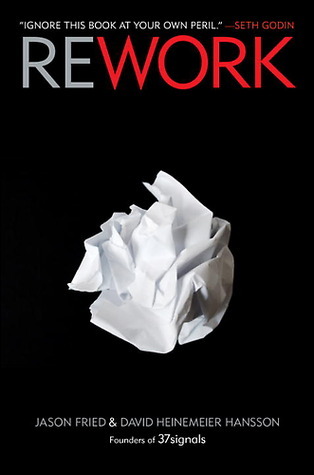More on this book
Community
Kindle Notes & Highlights
Workaholics aren’t heroes. They don’t save the day, they just use it up. The real hero is already home because she figured out a faster way to get things done.
Whenever you can, swap “Let’s think about it” for “Let’s decide on it.” Commit to making decisions. Don’t wait for the perfect solution. Decide and move forward.
Set a timer. When it rings, meeting’s over. Period. Invite as few people as possible. Always have a clear agenda. Begin with a specific problem. Meet at the site of the problem instead of a conference room. Point to real things and suggest real changes. End with a solution and make someone responsible for implementing it.
“What can we do in two weeks?”
prioritize visually. Put the most important thing at the top.
Trade the dream of overnight success for slow, measured growth.
You’ll also be a much better manager, because you’ll be supervising people who are doing a job you’ve done before.
Similarly, if you lose someone, don’t replace him immediately. See how long you can get by without that person and that position. You’ll often discover you don’t need as many people as you think.
You want a specific candidate who cares specifically about your company, your products, your customers, and your job.
Bottom line: The pool of great candidates is far bigger than just people who completed college with a stellar GPA. Consider dropouts, people who had low GPAs, community-college students, and even those who just went to high school.
Managers of one are people who come up with their own goals and execute them. They don’t need heavy direction. They don’t need daily check-ins. They do what a manager would do—set the tone, assign items, determine what needs to get done, etc.—but they do it by themselves and for themselves.
People will respect you more if you are open, honest, public, and responsive during a crisis.
So don’t protect the people doing the work from customer feedback. No one should be shielded from direct criticism.
Culture is action, not words.
Optimize for now and worry about the future later.
Great environments show respect for the people who do the work and how they do it.
When everything constantly needs approval, you create a culture of nonthinkers. You create a boss-versus-worker relationship that screams, “I don’t trust you.”
Talk to customers the way you would to friends.
reserve your use of emergency language for true emergencies.
Inspiration is a magical thing, a productivity multiplier, a motivator.


